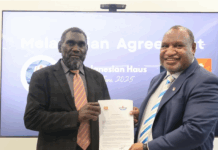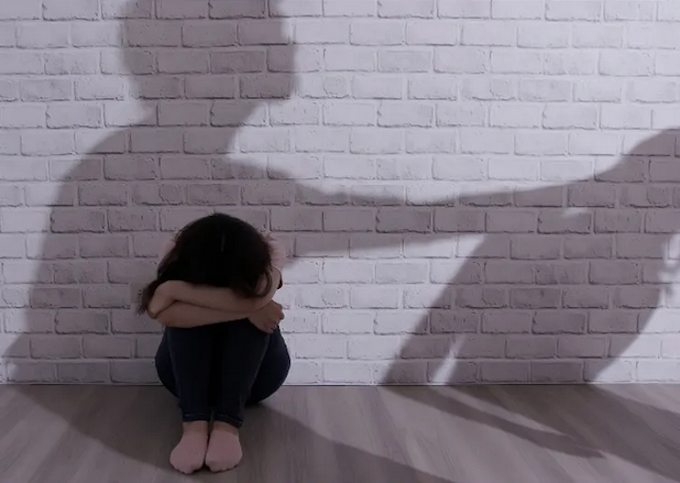
This open letter to En Avant Toute and journalists at France 24 and France Info marked the International Day of the World’s Indigenous Peoples last week. It has been sent to Asia Pacific Report and Pacific Media Watch.
A controversial report by a French metropolitan not-for-profit about sexual and sexist violence in France’s overseas territories — including Kanaky New Caledonia — has had its findings reported in mainstream French media, stirring strong criticism by Kanak social justice and human rights advocates.
The report has led to a condemnation and accusations of “colonialism and racism” in an open letter directed at the NGO, En Avant Toute(s), and two mainstream media outlets that carried news about the findings, France 24 and France Info.
“It is really about journalism, feminism, and decolonisation of knowledge production,” says an Pacific Media Watch correspondent about the issue.
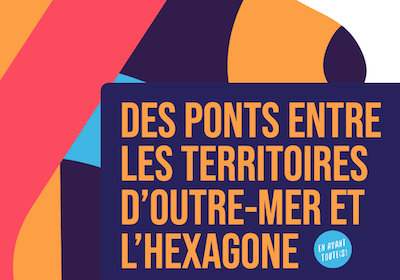
“The problem is the organisation didn’t actually travel to New Caledonia. Instead, they conducted phone interviews with a select, small group of NGOs in New Caledonia’s Southern Province, leading to comments in the media about Kanak tradition and sexual abuse which were wrong.”
The open letter, sent to Asia Pacific Report, says:
We are gathering to send you this letter on the International Day of the World’s Indigenous Peoples, which aims to raise awareness among the public on the problems faced by Indigenous people.
Our approach is first rooted in our need to denounce the severity of the lies that have been mediatised and to minimise the harm done, but also to educate on the struggles of Indigenous peoples and the fight against sexual and sexist oppression, specifically in a colonial context, and so that the tools and resources that are deployed in these struggles serve the people who are affected first and foremost.
We are Indigenous, Kanak, French, women, men, people from Kanaky/New Caledonia committed to social justice in our country at a personal level, professional level, but also as volunteers, advocates and militants in associations.
Recently, we have come across the report “Des ponts entre les territoires d’outre-mer et l’hexagone” (“Bridges between overseas territories and the hexagone”) through French hexagonal media [the hexagon is a synonym for metropolitan France].
This report was produced by the French association named En Avant Toute(s) and it attempts to explore the contexts of the French overseas territories when it comes to sexual and sexist violence against women and LGBTQIA+ people.
It also assesses the needs for their chat service, currently mostly operating in hexagonal France. We are alarmed by two main points: 1/ Misinformation in the media; 2/ How weak the report is as well as its colonial approach, which shows a lack of understanding of French overseas territories, and of Kanaky/New Caledonia more specifically, since that is what affects us.
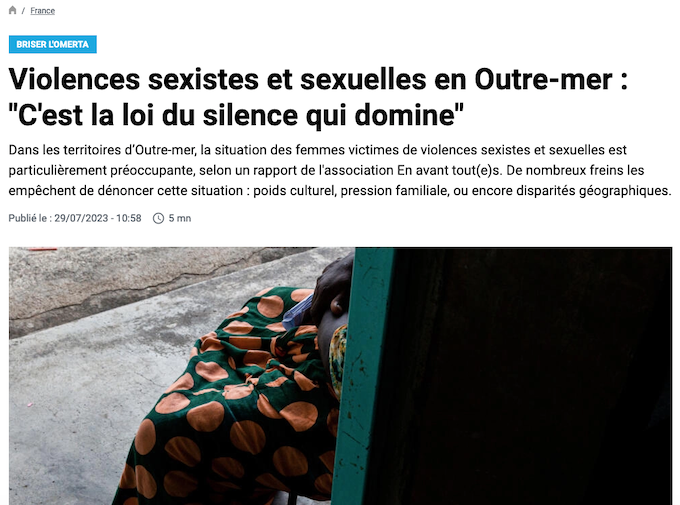
Misinformation in the media
In an interview published on July 12, 2023 by France Info, Aurélie Garnier-Brun declared: “customary law [is] being superimposed on common law.
“What will the victims turn to? Customary law or common law?… It is not the same text. Customary law is based on ancestral practices. Sometimes, victims must apologize to their perpetrator to settle conflicts within a clan.’”
This information is shared once again in an interview published on July 29, 2023 by France 24 in which Garnier-Brun indicates that “in New Caledonia, the co-existence of common law and customary law can represent a risk factor for women in terms of their exposure to violence” and that “some Kanak tribes have traditions which demand that the victims of violence ask their perpetrators’ for forgiveness”.
We would like to ask you the following questions: What are these allegations based on? This is a scoop that Kanak women and men are finding out about with surprise and horror from our dear islands on which you have not had the pleasure to set foot on to conduct your research.
What do you know about our traditions, about Kanak culture, about the stakes at play in the coexistence of customary and common law? What do you even know about violence against women in Kanaky/New Caledonia to draw such dangerous conclusions, make them into statements easily shareable by French media, which don’t even seriously fact check the information, especially when we know how important and worrying the topic of violence against women is?
Kanak custom condemns violence against women, and does not protect perpetrators, contrary to what is suggested in these interviews.
Then, in an interview published on July 18, 2023 by Causette magazine, la Case Juridique Kanak (ACJK) is described as a “local religious community”. For your information, the ACJK is an association of volunteer lawyers who are mobilised around questions of customary law. Therefore, it is not a “local religious community” as the interview suggests.
It is clear, and we regret it, that these declarations belong to a time we wished was in the past, but apparently persists since it is resurfacing through your narrative. It is part of a discourse that suggests that Indigenous and colonised peoples, including the Kanak people, supposedly have backward traditions, unaligned with Western civilisation, which is seen as the reference, given that it is supposedly more advanced on the question of gender equality.
The mediatisation of this type of discourse is an insult, an example of colonial ignorance, a major contribution to misinformation and the reproduction of a backward, discriminatory, racist and colonial vision of the French overseas territories. Consequently, this misinformation makes us question:
Firstly, the legitimacy of the En Avant Toute(s) representatives to speak about sexual and sexist violence in the overseas territories, and more specifically, in Kanaky/New Caledonia;
Secondly, the fact that this information is shared by French media without any control or verification with knowledge holders in the country.
The production of colonial knowledge
En Avant Toute(s) is clear in its motivations. As is indicated in a publication made on the association’s Linkedin page, one of the objectives of the report was to analyze the situation in the overseas territories to think about the implementation of their chat service Commentonsaime.fr in our territories.
En Avant Toute(s) did not travel to our countries but spoke to some associations through videoconferences. When it comes to Kanaky/New Caledonia, En Avant Toute(s) was in contact with two associations: Le Relais and Centre d’Information Droit des Femmes et Egalité (CIDFE), both associations based and funded by the Southern Province, one of the three provinces in the country.
According to us, having only spoken to a small number of associations, En Avant Toute(s) is not in a position to produce an empirical, informed and critical report, which would allow a better understanding of violence perpetrated against young women and the LGBTQIA+ community in Kanaky/New Caledonia.
For this to be the case, they should have been in conversation with many more actors and partners across the country, to have a more extensive and representative sample.
Looking at the lack of sufficient data and the primary aim which was to analyse different overseas contexts to assess the possible implementation of the chat service, it seems that calling the document a “report” is a little ambitious, if not inappropriate.
The approach does not come from our territories and is not led or co-produced with local populations or associations. It would be more appropriate to speak of the beginning of a market research or a feasibility survey. Here, words matter, since the publication of a report confers authority and suggests expertise.
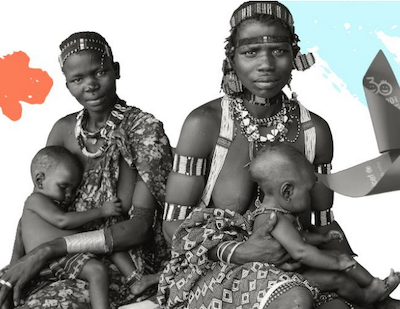
However, in our context, we do not think that En Avant Toute(s) is able to speak about sexual or sexist violence in Kanaky/New Caledonia in the media, nor to produce a report on the topic. We would like to invite the members of En Avant Toute(s) who have participated to this survey as well as the media who have participated to its legitimisation to think about the conditions that authorise individuals who have never set foot on, nor are implicated in, our territories, to publish “reports” and be interviewed by national media as experts of our contexts.
In addition, we condemn that the launch of the so-called report took place in hexagonal [mainland] France and that many associations committed to the struggle against sexual and sexist violence in our country were not invited to participate.
Indeed, we only learnt about this study through the media. We denounce this type of colonial practices, where resources are extracted from our territories so that organisations, companies, associations in France can benefit from them, without us being directly implicated.
We understand that the stakes are the possible implementation of a tool which would complement what is already in place to tackle sexual and sexist violence in our territories, and that the intention is commendable. Nevertheless, without any real collaboration with the most affected and informed people, we remain sceptical of its possible results.
We also cannot be convinced of the efficacy of such a tool when we have no information regarding the performance of the chat service in hexagonal France, nor any about the ways in which En Avant Toute(s) would adapt it to our territories.
Faced with these alarming observations and in order to minimise the harm done to the Kanak people in the name of tribal Kanak women, whose voices are absent from the report and in the media, here are our demands:
- A statement written by En Avant Toute(s) to be published on all their social media platforms and on their website, which would refute the declarations made in relation to a so-called Kanak tradition that would require victims of sexual violence to ask their perpetrators for forgiveness in some tribes;
- The deletion of this misinformation in the interviews published by France Info and France 24, with an explanatory note; and
- A right of reply in the media that published this information, France Info and France 24, in order to deny these harmful declarations and enable the women who are involved in the struggle against sexist and sexual violence in Kanaky/New Caledonia to have their voices heard nationally.
Our primary aim remains social justice in our country, and it is only attainable if we pay attention to all the axes of oppression, including the ways in which colonialism and racism play a significant role in the oppression of women.
Racism and colonialism also impact [on] our relations as militants, advocates, members of feminist associations, and particularly when it comes to North/South and Hexagone/Overseas territories relations.
This requires that for all collaborative work with associations, groups and collective that are not based in our territories, there is a shared understanding of our historical and political contexts and of the power dynamics at play, an attention paid to not reproducing harmful discourses which participate in the silencing of colonised women, and the consideration of people who are involved in and from our territories as the most suitable to speak about the issues they face and struggle against.
Signatories
La Pause Décoloniale (Kanaky/Nouvelle-Calédonie)
Union des Femmes Francophones d’Océanie (UFFO) NC (Kanaky/Nouvelle-Calédonie)
Arnaud Chollet-Leakava, Porte-Parole du Mouvement des Océaniens Indépendantistes (MOI) (Kanaky/Nouvelle-Calédonie)
Oriane Trolue, Chargée de la condition féminine de politique décoloniale du Mouvement des Océaniens Indépendantistes (MOI) (Kanaky/Nouvelle-Calédonie)
Hugues Vhemavhe, Sénateur Coutumier de l’Aire Hoot Ma Whaap (Kanaky/Nouvelle-Calédonie)
Rolande Trolue, feminist and resource person (Kanaky/Nouvelle-Calédonie)
Fara Caillard, Marche Mondiale des Femmes (Kanaky/Nouvelle-Calédonie)
Billy Wete, pastor (Kanaky/Nouvelle-Calédonie)
Morgane Lepeu ép. Goromoedo (Kanaky/Nouvelle-Calédonie)
Denis Pourawa, Kanak poet-writer (Kanaky/Nouvelle-Calédonie)
Teva Avae, artist (Kanaky/Nouvelle-Calédonie)
Ronny Kareni, West Papua Merdeka Support Network & Rise of the Morning Star (West Papua)
Florenda Nirikani, Militante Éducation Populaire CEMEA Pwârâ Wâro (Kanaky/Nouvelle-Calédonie)
Virginie Murcia, president of the Union des Groupements Parents d’Élèves UGPE (Kanaky/Nouvelle-Calédonie)
Doriane Nonmoira, Union des Femmes Francophone d’Océanie (Kanaky/Nouvelle-Calédonie)
Wendy Nonke, Mouvement pour un Souriant Village Mélanésien (Kanaky/Nouvelle-Calédonie)
Patrick Tara (Kanaky/Nouvelle-Calédonie)
Justine-Rose Boaé Kéla (Kanaky/Nouvelle-Calédonie)
Swänn Iché (Kanaky/Nouvelle-Calédonie)
Laurent Lhermitte, Les Insoumis du Pacifique (Kanaky/Nouvelle-Calédonie)
Raïssa Weiri (Kanaky/Nouvelle-Calédonie)
Marie-Rose Yakobo, student (Kanaky/Nouvelle-Calédonie)
Yvette Danguigny, Association Natte Kanak (Kanaky/Nouvelle-Calédonie)
Nathanaëlle Maleko (Kanaky/Nouvelle-Calédonie)
David Robert, Union Calédonienne (Kanaky/Nouvelle-Calédonie)
Alexia Babin (Kanaky/Nouvelle-Calédonie)
Pierre Chanel Nonmoira, customary leader (Kanaky/Nouvelle-Calédonie)
Gladys Nekiriai (Kanaky/Nouvelle-Calédonie)
Sabrina Pwéré (Kanaky/Nouvelle-Calédonie)
Xavier Nonmoira, young Kanak revolutionary (Kanaky/Nouvelle-Calédonie)
Adeline Babin (Kanaky/Nouvelle-Calédonie)
Ghislaine Pwapy (Kanaky/Nouvelle-Calédonie)
Valentin Nemia (Kanaky/Nouvelle-Calédonie)
Célestine Beleouvoudi (Kanaky/Nouvelle-Calédonie)
Mériba Karé (Kanaky/Nouvelle-Calédonie)
Présence Kanak (Kanaky/Nouvelle-Calédonie)
Jacques Guione, Association Djors (Kanaky/Nouvelle-Calédonie)
Ludmila Jean, Association Djors (Kanaky/Nouvelle-Calédonie)
Yvette Poma (Kanaky/Nouvelle-Calédonie)
Marie-Madeleine Guioné, Kanak woman (Kanaky/Nouvelle-Calédonie)
Augusta Nonmoira, Kanak woman (Kanaky/Nouvelle-Calédonie)
Lucien Sawaza (Kanaky/Nouvelle-Calédonie)
Monique Poma (Kanaky/Nouvelle-Calédonie)
Jean Rock Uhila (Kanaky/Nouvelle-Calédonie)
Vaïana Tiaore, Corail Vivant Terre des Hommes (Kanaky/Nouvelle-Calédonie)
Laurie Anne Le Pen (France)
Aaron Houchard Mitride (Kanaky/Nouvelle-Calédonie)
Roger Nemia (Kanaky/Nouvelle-Calédonie)
Atrune Palene (Kanaky/Nouvelle-Calédonie)
Amandine Tieoue (Kanaky/Nouvelle-Calédonie)
Iouanna Gopoea (Kanaky/Nouvelle-Calédonie)
Sylviany M’boueri (Kanaky/Nouvelle-Calédonie)
Valentine Wakanengo (Kanaky/Nouvelle-Calédonie)
Simane (Kanaky/Nouvelle-Calédonie)
Jacinthe Kaichou (Kanaky/Nouvelle-Calédonie)
Romain Purue (Kanaky/Nouvelle-Calédonie)






























